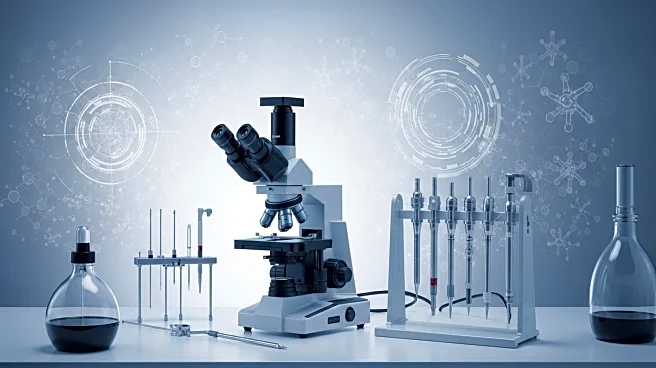What's Happening?
Courtney Hazelton-Harrington, a senior R&D scientist at Lonza Biologics, has highlighted the role of process intensification in advancing analytical technologies within biomanufacturing. Her study emphasizes the importance of high-throughput analytical technologies in enhancing productivity and efficiency. Process analytical technology (PAT) provides real-time data, enabling better control and faster analysis. Hazelton-Harrington's collaboration with Sartorius explored the use of Raman spectroscopy to improve downstream processes, specifically ultrafiltration/diafiltration purification steps. The study demonstrated the potential of inline Raman monitoring to track protein and excipient concentrations effectively.
Why It's Important?
The advancement in analytical technologies driven by process intensification is crucial for the biomanufacturing industry. It promises increased productivity, efficiency, and sustainability, which are vital for maintaining competitiveness and meeting growing demand. Enhanced analytical capabilities can lead to better process control and reduced reliance on offline analytics, streamlining operations and reducing costs. This innovation is particularly significant for companies aiming to scale up production while maintaining high quality standards.
What's Next?
Further development of the Raman spectroscopy model is anticipated, with potential applications in chromatography processes. The success of this technology could lead to broader adoption across the industry, encouraging more companies to integrate advanced analytical tools into their manufacturing processes. Continuous improvement in PAT strategies may drive further innovation, potentially leading to new methodologies and technologies that enhance bioprocessing efficiency.










